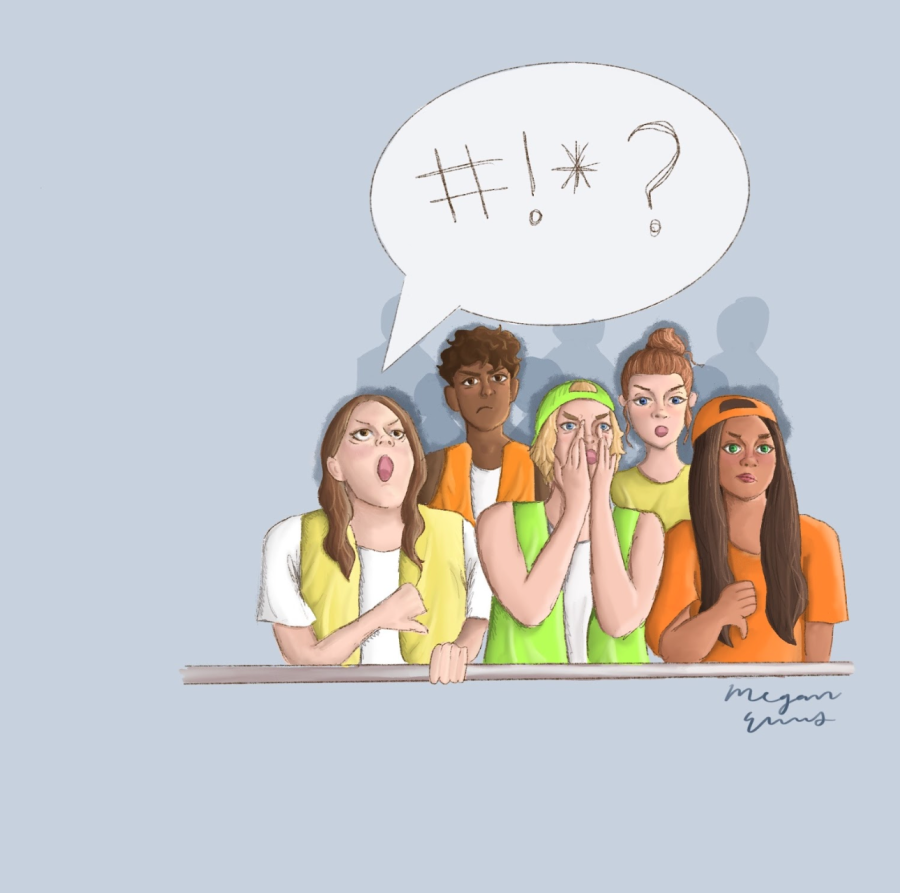Sportsmanship, respecting high school athletes
As fall sports are starting up again for schools all around the country, sportsmanship has been on many people’s minds. Whether a new player, captain, senior or coach, the way you treat your players and peers is pertinent for the attitude of the upcoming season. Teamwork can only be accomplished when everyone involved treats each other with respect. Students have many responsibilities in high school, but when taking on extra loads with sports and activities, a toxic coach, student/parent section and other players can take a major toll on players.
Most fall sports have some kind of student section— a group of students cheering and chanting for the team— who usually create an energetic and consolidated atmosphere. Whether dressing up for Friday night football games or making signs for a soccer game, students support their team. But when energy and competitiveness go too far, fighting can occur and the safety of the students and players is put at risk. This also happens with parents fighting across the field and yelling at players. Students need constructive criticism, not demeaning criticism. Many shut down when yelling is involved, and a lighter approach may have a more postive reaction.
Coaches “going crazy”, and screaming at players, refs and the other team can lead to red cards, penalties and getting ejected from the game. A coach’s job is to instruct and improve the team’s performance through practice and encouragement. This means there is a difference between being rigorous and pushing a team too far. On that same note, seniors, upperclassmen, and captains are role models to their teammates. As older and more experienced players, freshmen and newcomers look up to them, leaving power and influence in their hands. When seniors take advantage of said power, they can influence newcomers in the wrong ways and make a lasting negative impact. Recently, there has been a lot of talk about hazing in college and high school sports activities. Hazing is defined as humiliating and sometimes dangerous initiation rituals for a program or sports team. When involved in these hazing rituals that are absolutely uncalled for, seniors and upperclassmen try to show superiority. But there is a difference between seniority and superiority; being older does not make one more important. Hazing is uncalled for and unacceptable in any circumstance.
Putting the line between being personal towards a player and treating events as fun sports games is of major importance. Sports should be fun and a learning experience, not something that students dread. How one is treated affects their outlook on the sport or activity, and can determine whether or not one plays for another year. Whether a student section that is toxic towards the opposing team or players, seniors abuse their power towards freshmen or a coach who screams at their players; no one deserves to be treated with disrespect when playing a sport. Being encouraging and helpful to students should be the number one priority, and focusing on sportsmanship should always be the main goal of any sport. It takes everyone on a team to create a respectful and enjoyable environment.



